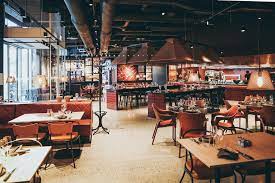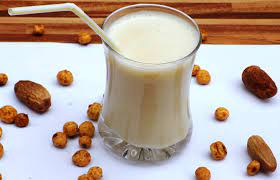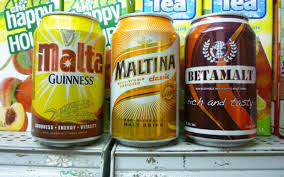
The drinks supply business in Nigeria involves the distribution of alcoholic and non-alcoholic drinks, including beer, soft drinks, juices, bottled water, and energy drinks, among others. The business is highly competitive, with many players in the market, including manufacturers, wholesalers, and retailers.
Manufacturers of drinks in Nigeria include local companies such as Nigerian Breweries, makers of popular beer brands such as Star, Gulder, and Legend, and Coca-Cola Nigeria, makers of Coca-Cola, Sprite, and Fanta, among others. These manufacturers produce their products in large quantities and distribute them through wholesalers and distributors to retailers and consumers.
Wholesalers and distributors are an essential part of the drinks supply business in Nigeria. They buy drinks in large quantities from manufacturers and distribute them to retailers, including supermarkets, bars, restaurants, and small retail stores.
Retailers, on the other hand, sell drinks to consumers. They include small retail stores, roadside vendors, and supermarkets.
The drinks industry in Nigeria has experienced significant growth over the years, presenting a lucrative opportunity for entrepreneurs looking to start a drinks supply business. Nigeria's population of over two hundred million (200,000,000) people, coupled with a rising middle class and changing consumer preferences, makes it an ideal market for beverages.
This article will provide a comprehensive guide on how to start a drinks supply business in Nigeria, covering essential steps, considerations, and strategies for success.
Market Research and Analysis
Before diving into any business venture, thorough market research is essential. It helps you understand the dynamics of the drinks industry in Nigeria, identify potential opportunities, and gain insights into your target market. Conduct market research to determine:
a) Demand and competition: Analyze the demand for various types of drinks, such as soft drinks, juices, bottled water, alcoholic beverages, and energy drinks. Identify existing suppliers and distributors in the market, their product offerings, pricing, and distribution channels.
b) Target audience: Identify your target audience based on demographics, preferences, and purchasing power. Understand their preferences, the factors influencing their buying decisions, and the market gaps you can fill.
c) Regulatory requirements: Familiarize yourself with the regulatory framework governing the drinks industry in Nigeria. Research permits, licenses, certifications, and labeling requirements necessary for operating a drinks supply business.
Business Plan Development
A well-structured business plan serves as a roadmap for your drinks supply business. It outlines your goals, strategies, financial projections, and marketing plans. Here are some key elements to include in your business plan:
a) Executive summary: Provide an overview of your business idea, target market, and competitive advantage.
b) Company description: Detail the legal structure of your business, location, and ownership details.
c) Product portfolio: Outline the types of drinks you intend to supply, including popular brands and niche products.
d) Market analysis: Share your findings from market research, including demand, competition, and target audience.
e) Marketing and sales strategies: Define your marketing plans, distribution channels, pricing, and promotional activities.
f) Operations and logistics: Outline your supply chain management, including sourcing drinks, inventory management, and delivery processes.
g) Financial projections: Include a detailed financial forecast, including startup costs, revenue projections, and break-even analysis.
Legal and Regulatory Compliance
Complying with legal and regulatory requirements is crucial for the smooth operation of your drinks supply business. Here are some important considerations:
a) Business registration: Register your business with the Corporate Affairs Commission (CAC) and obtain the necessary legal documentation, such as a Certificate of Incorporation.
b) Permits and licenses: Apply for permits and licenses required for operating a drinks supply business, including food and beverage permits and any specific licenses for alcoholic beverages.
c) Tax registration: Register your business with the Federal Inland Revenue Service (FIRS) and obtain a Tax Identification Number (TIN).
Source for Suppliers
In the drinks supply business, the quality and availability of the drinks are crucial to success. You need to source for suppliers who can provide quality drinks at affordable prices. You can source for suppliers from local distributors, manufacturers, or importers. Ensure that you have a good relationship with your suppliers to ensure a steady supply of drinks.
Choose a Location
Choosing the right location for your drinks supply business is critical to success. The location should be easily accessible to your target audience, have adequate storage space, and be close to your suppliers. You can choose to set up your drinks supply business in a commercial area, near restaurants, bars, and clubs.
Determine Your Pricing Strategy
Pricing is a crucial aspect of any business. You need to determine your pricing strategy to ensure profitability and competitiveness. The pricing of your drinks should consider the cost of production, transportation, and other overhead expenses. You can also check the prices of your competitors to determine the best pricing strategy.
Marketing Your Business
Marketing is essential for the success of any business. You need to develop a marketing strategy to create awareness and attract customers to your drinks supply business. You can use social media platforms, flyers, billboards, and other advertising channels to market your business.
Hire Employees
As your business grows, you may need to hire employees to help with the operations of your drinks supply business. You need to hire employees with relevant skills and experience in the drinks supply business. You can also provide training to your employees to improve their skills and knowledge.
Monitor Your Business
Monitoring your drinks supply business is crucial to ensure that it operates efficiently and effectively. You need to keep track of your inventory, sales, and expenses. Regular monitoring of your business will help you identify potential challenges and make necessary adjustments.
Challenges Facing the Drinks Supply Business in Nigeria
The drinks supply business in Nigeria faces several challenges that affect its growth and profitability. These challenges include:
Poor Road Network: The poor road network in Nigeria makes it difficult for drinks to be transported from manufacturers to wholesalers and retailers. This leads to delays and damages to drinks during transportation, which can affect the quality of the product.
Inadequate Storage Facilities: The lack of adequate storage facilities is another challenge facing the drinks supply business in Nigeria. Wholesalers and distributors often struggle to find storage space for their drinks, which can lead to spoilage and loss of profits.
High Cost of Production: The high cost of production is another challenge facing the drinks supply business in Nigeria. This is due to the high cost of raw materials, energy, and transportation.
Counterfeit Products: The prevalence of counterfeit products in Nigeria is also a challenge for the drinks supply business. Counterfeit drinks are often sold at a lower price, which can affect the sales of genuine products and lead to a loss of profits for manufacturers, wholesalers, and retailers.
Conclusion
Starting a drinks supply business in Nigeria requires careful planning, dedication, and hard work. You need to conduct market research, develop a business plan, register your business, obtain licenses and permits, source for suppliers, choose a location, hire employees and monitor your business.
The Nigerian drinks supply market presents several opportunities for entrepreneurs and investors. One of the key drivers of growth is the increasing preference for convenience. As more Nigerians adopt busy lifestyles, there is a rising demand for ready-to-drink beverages that can be easily accessed and consumed on-the-go. This trend has led to the proliferation of convenience stores, supermarkets, and mini-marts, which serve as key distribution channels for drinks.
Furthermore, the country's large population and growing middle class offer a significant customer base for premium and imported beverages. As consumers become more discerning, they seek a wider range of options, including healthier and natural drinks. This opens up opportunities for suppliers of organic juices, low-sugar beverages, and functional drinks.
Drinks supply business in Nigeria is a very profitable business and would generate a lot of profit for the investor.






















